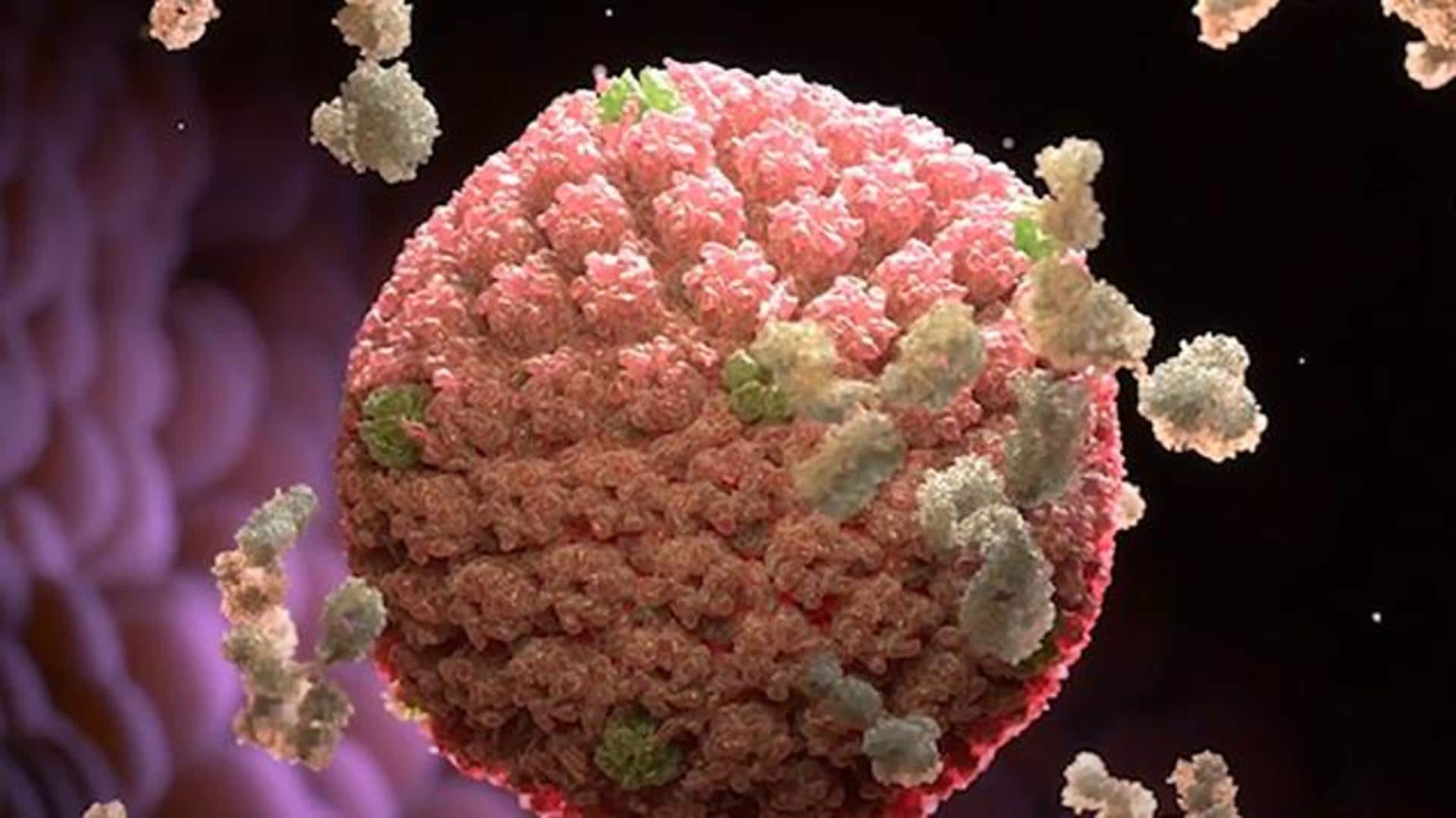
First vaccine targeting Epstein-Barr virus yields promising results
What's the story
Researchers in Australia have made a breakthrough in developing the first-ever vaccine against the Epstein-Barr virus (EBV), which causes infectious mononucleosis and can lead to cancer and multiple sclerosis. The vaccine targets lymph nodes in mice, producing strong, long-lasting antibodies and T cells to fight EBV. By blocking EBV activity early, it also prevents secondary issues like brain inflammation that leads to multiple sclerosis.
Details
Dual immune response combats herpes family virus
The vaccine formulation induces both antibody and T-cell immune responses, which are crucial for long-term protection against EBV-associated diseases. Antibodies eliminate invading pathogens by binding to them, while T-cells destroy these pathogens and help coordinate the body's defenses. This combination of immune responses is essential in combating the herpes family virus, which affects 95% of the world's population but usually doesn't cause serious symptoms.
What Next?
Human clinical trials on the horizon for EBV
The team has secured some funding from industry partners for human clinical trials and is seeking additional funds to make the trials as comprehensive as possible. If all goes well, these trials could begin in 2024 or 2025. The promising research has been published in Nature Communications, marking a significant milestone in the development of a vaccine against Epstein-Barr and its associated health complications.